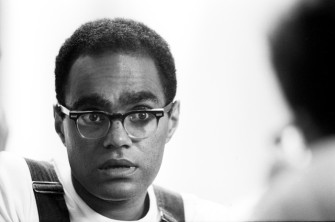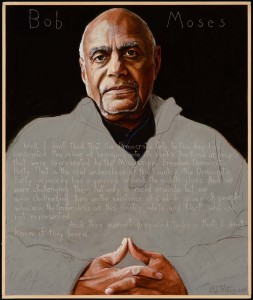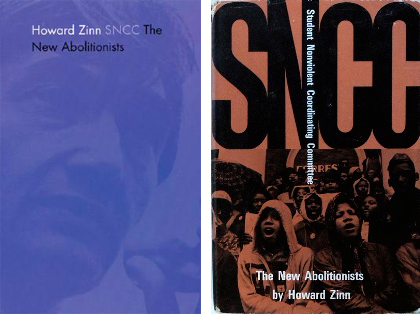
Robert Moses at the training for Freedom Summer volunteers, 1964. Photo by Steve Schapiro.
Robert Parris Moses was born on January 23, 1935, in Harlem, New York. Despite his quiet demeanor, he became an important figure in the Civil Rights Movement, working with Martin Luther King, Jr. and the Southern Christian Leadership Conference (SCLC).
In 1961, Moses, then field secretary of the Student Nonviolent Coordinating Committee, became the head of the SNCC’s Mississippi Project. Moses organized voter registration drives, sit-ins, and Freedom Schools, which led to significant gains in voting rights for black Mississippians.
As an organizer, he was heavily influenced by Ella Baker, who believed civil rights movements should belong to the people not to the leaders. In order to put victory in the hands of citizens, she believed, organizers should stay in the background, developing trust in communities, helping people define what they want, and then guiding them to their goals.
Continue reading this bio, from Americans Who Tell the Truth, here.
Learn about Moses’ current work at the Algebra Project.
“Well, I don’t think that the Democratic Party to this day has confronted the issue of bringing into its ranks the kind of people that were represented by the Mississippi Freedom Democratic Party. That is the real underclass of this country. The Democratic Party primarily has organized around the middle class. And we were challenging them not only on racial grounds but we were challenging them on the existence of a whole group of people who are the underclass of this country, white and black, who are not represented. And they weren’t prepared to hear that; I don’t know if they heard.” —Bob Moses, quote on portrait











Twitter
Google plus
LinkedIn